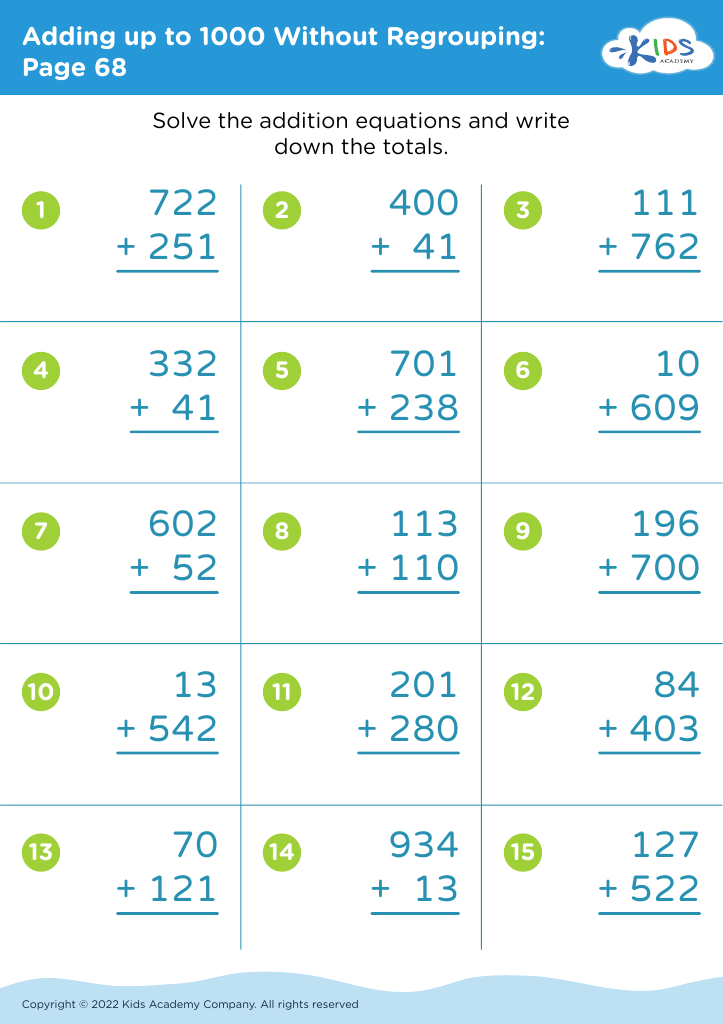Understanding number sequences Addition Worksheets for Ages 4-9
3 filtered results
-
From - To
Discover our engaging "Understanding Number Sequences Addition Worksheets for Ages 4-9," designed to enhance your child’s mathematical skills. These worksheets are perfect for young learners to grasp the concept of number sequences and addition progressively. Each worksheet offers fun, interactive activities and illustrations that make learning enjoyable and effective. Suitable for kids aged 4-9, these exercises help build a solid foundation in basic math concepts, critical thinking, and problem-solving skills. Perfect for home or classroom use, our worksheets are a great tool to support your child’s journey to math proficiency. Explore and download now for smart, engaging learning!
Parents and teachers should prioritize understanding number sequences and addition for children ages 4-9 because these foundational math skills are crucial for their cognitive development and future academic success. During these formative years, children are in a critical period for developing their numeracy skills, which underpin more complex mathematical concepts they will encounter later in life.
Number sequences help children recognize patterns and understand the concept of order, which is essential for developing logical thinking and problem-solving abilities. Recognizing patterns also assists in the understanding of the number line and arithmetic operations, laying the groundwork for topics such as multiplication and division.
Addition, as one of the basic arithmetic operations, enhances children’s ability to perform everyday calculations, promoting confidence in handling numbers. Mastering addition helps children develop their mental math skills, which are invaluable not just in academic settings but in real-life scenarios such as time management, budgeting, and cooking.
Moreover, cultivating these skills early fosters a positive attitude toward math. When children understand number sequences and feel comfortable with addition, they are more likely to enjoy math and less likely to develop math anxiety. This positive relationship with math encourages curiosity, persistence, and a lifelong love of learning, setting the stage for continued academic achievement and problem-solving skills in various aspects of life.










.jpg)







